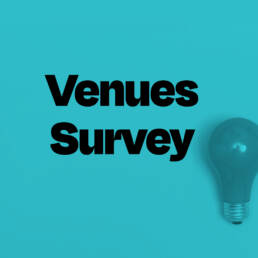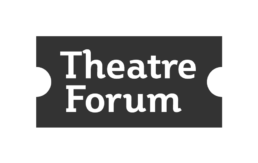This research project is funded by The Arts Council Capacity Building Scheme Award 2023 and presented in partnership with Theatre Forum and IAST.
Tungsten lighting has been the main light source in performance spaces for many decades. However, the move to LED is inevitable: many tungsten bulbs manufacturers have discontinued producing them and, consequently, not only they are harder to find but also, they are becoming increasingly expensive. Besides, LED fittings are far more efficient and reduce energy consumption by around 80%, having far less impact on the environment.
Although the EU Ecodesign Directive regulations wrote an exception to stage lighting in 2020, allowing venues to keep most of the tungsten and arc sources in rotation, with the rising cost of energy, the durability of LED lights sources, and a more conscious approach to sustainable practices in the arts, the transition is accelerating.
Many venues have started implementing LED equipment. However, there are no standards in place to execute this transition and there are several risks that need to be addressed.
On one hand, not all manufacturers provide the necessary quality and not all LED equipment is suitable for the different performances that might take place in a venue: from music gigs to subtle theatre shows. On the other, if each venue has a different equipment the hiring costs when touring will increase dramatically, having an impact on production budgets. Furthermore, lighting designers would have to invest precious time in learning how to operate each venue’s equipment, increasing production costs further.
Thanks to the Arts Council Capacity Building Support Scheme 2023, ISPD has commissioned lighting designers Sarah Jane Shiels, Kevin Smith and Sinéad Wallace to conduct a study and evaluation in consultation with relevant agents in the industry, such as the Irish Association of Stage Technicians (AIST), and key venues across the country to develop a Best Practices Handbook.
They will also organise a series of focus groups that will include the voice of technicians, production and stage managers, and designers from all disciplines – as the transition also impacts their work.
The focus groups will welcome producers, independent production companies, etc. to make them aware of the implications of this transition.
Initial Purposes:
⎯ Identify manufacturers/suppliers that provide good quality products, along with maintenance & insurance;
⎯ Consider the best equipment in terms of being efficient for both dynamic gig designs & subtle theatres shows — ideally there should be a consensus across venues as to what types of units they choose, which will help cut down on hire-costs for touring shows, while maintaining the integrity of different designs;
⎯ Offer advice on future planning as the advancements in technology will require venues to update – and at times replace – their lighting stock on a schedule quite different to the current model;
⎯ Identify the type of training that will be required by designers & technicians to implement the new LED equipment;
⎯ Offer recommendations to the relevant authorities towards future sustainable steps in the transition to LED lighting.
For the initial research stage, Kevin, Sarah Jane and Sinéad have developed three different surveys: one for Venues, one for Designers, and one for Production Managers, Chief LX, Programmers and Lighting Technicians.
We would appreciate if you could fill out the survey that is relevant to you below. Just click on the relevant image and the survey will open in a new tab/window.
Thanks in advance for your help. If you have any questions, please email us at tungstenledtransition[at]gmail.
Tungsten to LED Transition Research Project
This project is presented in association with Theatre Forum and IAST (Irish Association of Stage Technicians)
Funded by The Arts Council Capacity Building Support Scheme 2023.






